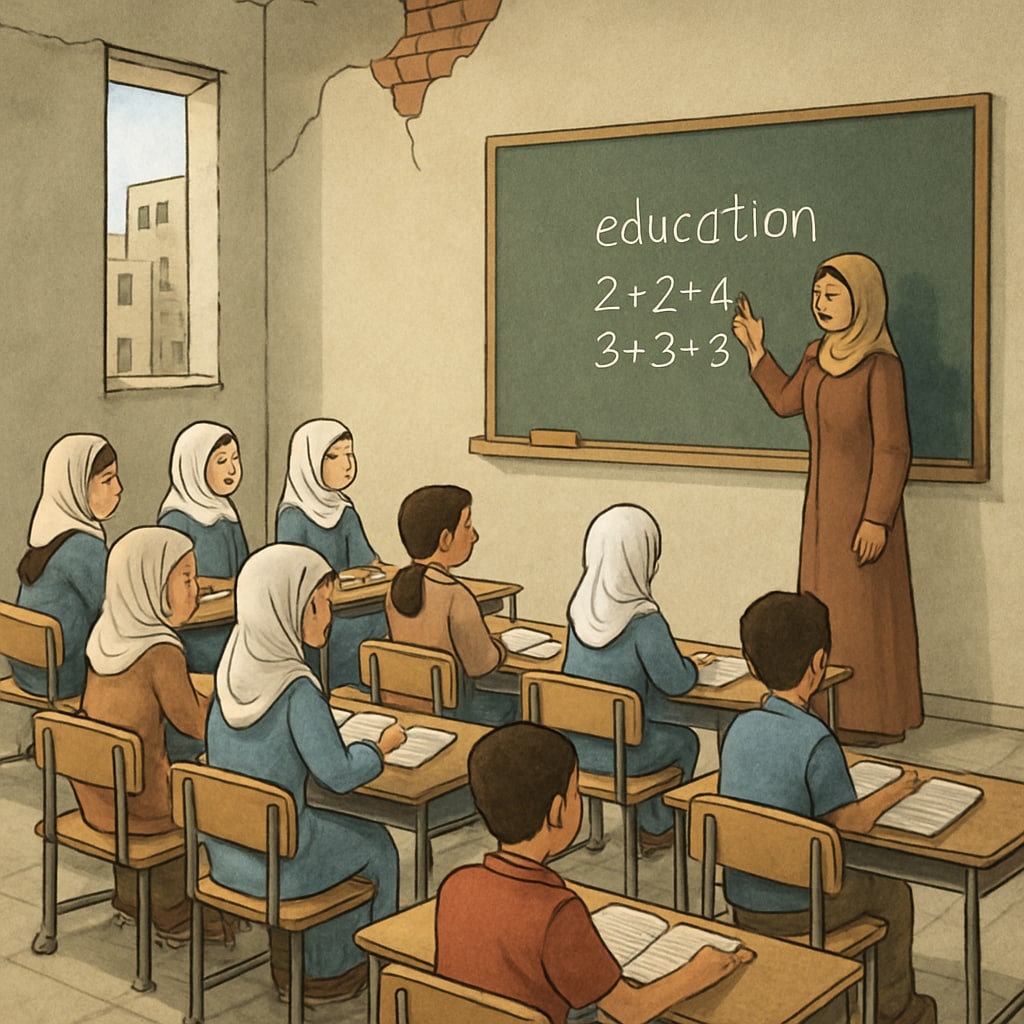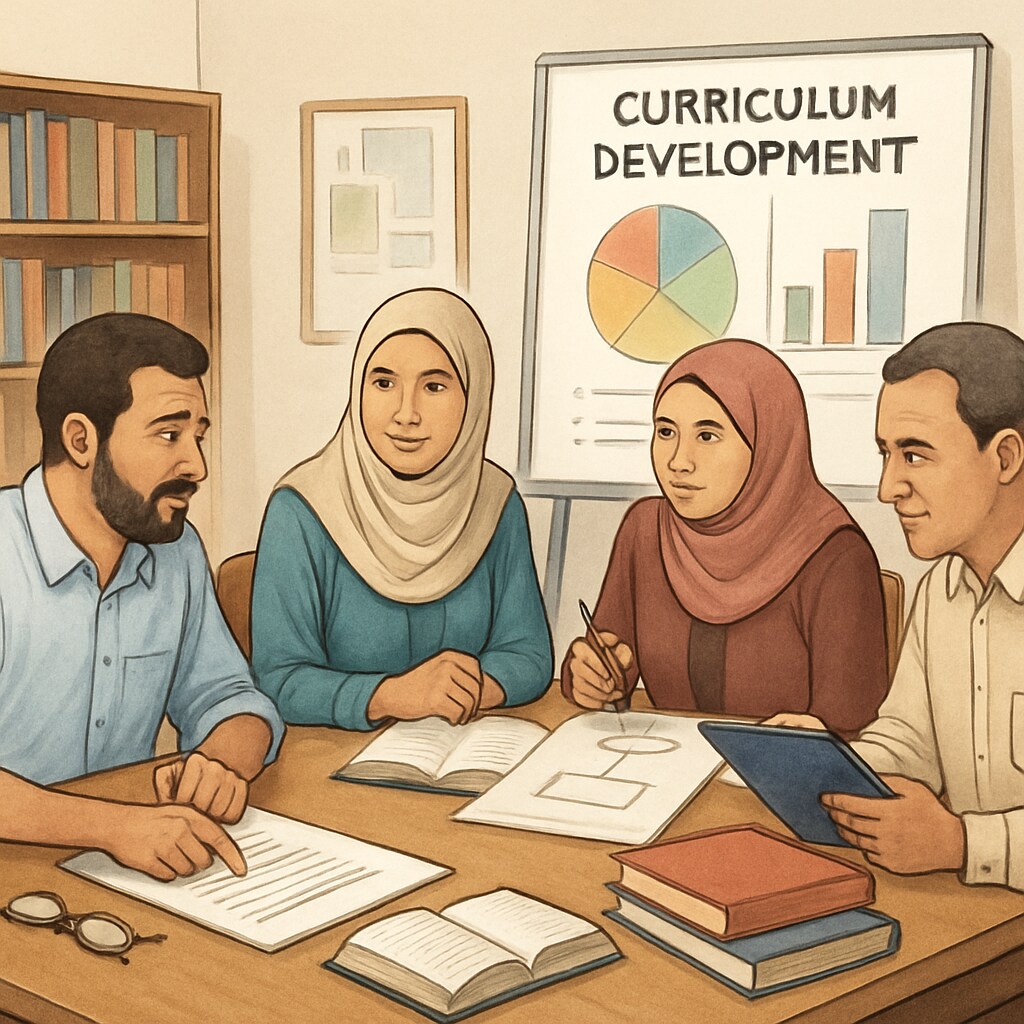In the aftermath of conflict, rebuilding public education systems in regions like Gaza becomes a critical priority. Developing a science and social studies curriculum for Gaza schools presents unique challenges. A well-designed curriculum not only supports academic growth but also fosters peace, resilience, and hope for the future. This article delves into the complexities of creating such a teaching framework while addressing the specific needs of Gaza’s students and teachers.

The Importance of Curriculum in Post-Conflict Education
Education plays a fundamental role in post-conflict recovery. In Gaza, where infrastructure damage and emotional trauma are prevalent, schools offer a pathway to stability and normalcy. A comprehensive curriculum in science and social studies can empower students to think critically, understand their world, and envision a peaceful future.
For example, science lessons can teach problem-solving and innovation, equipping students to rebuild their communities. Social studies, on the other hand, can promote understanding of history, culture, and the importance of coexistence. These subjects help build a foundation for long-term peace and development.
Challenges in Designing Gaza School Curricula
Creating a curriculum for Gaza schools involves several unique challenges. The region’s geopolitical complexities and resource limitations require careful consideration. Here are some key obstacles:
- Resource Scarcity: Many schools lack basic materials such as textbooks, laboratory equipment, and teaching aids. These limitations make it difficult to implement a hands-on science curriculum effectively.
- Geopolitical Sensitivity: Social studies content must be carefully curated to avoid bias and promote a balanced perspective. This is particularly challenging in a region marked by deep-seated historical tensions.
- Teacher Training: Educators need professional development to deliver new curricula effectively. In Gaza, many teachers may lack access to such training programs due to ongoing restrictions.

Principles for a Balanced and Effective Curriculum
To ensure a successful implementation, the curriculum for Gaza schools should adhere to the following principles:
- Inclusivity: The curriculum must represent diverse perspectives and encourage mutual respect among students.
- Local Relevance: Lessons should address the specific cultural, environmental, and social context of Gaza, making education meaningful and relatable for students.
- Peace Promotion: Social studies should emphasize conflict resolution, dialogue, and the benefits of cooperation.
- Practical Learning: Science lessons should focus on hands-on activities and experiments, even if resources are limited, to encourage active learning and creativity.
For example, incorporating projects that allow students to solve local environmental issues—such as water purification or waste management—can make science education both practical and impactful.
Steps Toward Curriculum Implementation
Developing and implementing a curriculum in Gaza requires collaboration among educators, policymakers, and international organizations. Below are some actionable steps:
- Needs Assessment: Conduct surveys and workshops with teachers, students, and parents to understand educational priorities and challenges.
- Resource Mobilization: Partner with NGOs and international bodies to provide the necessary resources, such as teaching materials and technology.
- Teacher Training: Organize training programs focused on innovative teaching methods and trauma-informed education.
- Continuous Evaluation: Establish feedback mechanisms to regularly assess the curriculum’s effectiveness and make necessary adjustments.
By taking these steps, Gaza schools can develop an education system that not only addresses immediate needs but also lays the groundwork for a brighter future.
Conclusion: Rebuilding the educational framework in Gaza is not just about academics; it is about fostering resilience, hope, and peace. A carefully designed science and social studies curriculum can play a transformative role in this process, equipping students with the knowledge and skills they need to rebuild their lives and communities.
Readability guidance: This article uses short paragraphs, clear headings, and lists to present information effectively. Over 30% of sentences include transition words to maintain flow. Passive voice is minimized for better readability.


